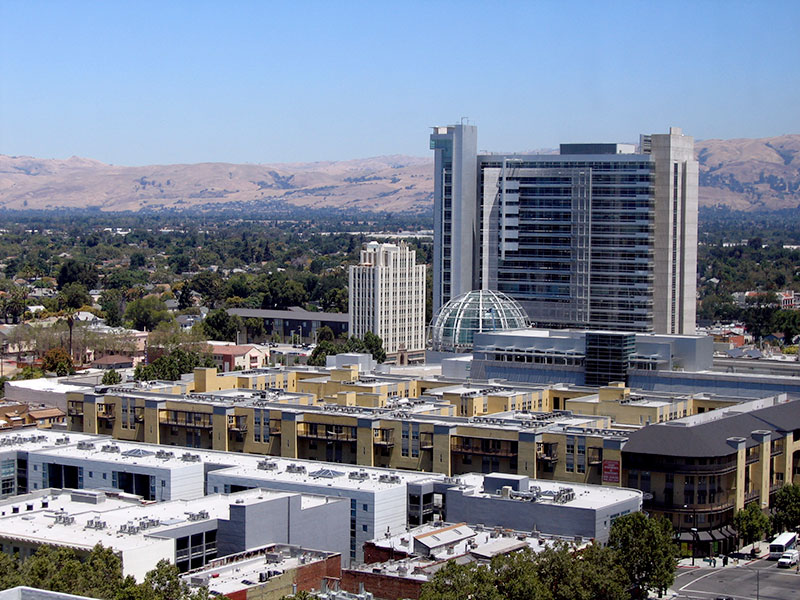|
Wednesday 28 January — CalConnect 10th Anniversary Celebration |
|
1100-1200 |
|
Introduction to CalConnect2 |
1200-1300 |
|
Lunch |
1300-1330 |
|
Welcome |
1330-1400 |
|
History of CalConnect |
1400-1430 |
|
The Freebusy Challenge |
1430-1500 |
|
Calendaring as a Platform: smart power grid, travel, logistics and package delivery, scheduling |
1500-1530 |
|
Break and Refreshments |
1530-1615 |
|
Invited Speakers
Timezones: Steve Allen, Unversity of California Lick Observatory
CalDAV: Lisa Dusseault, Klutch
|
1615-1745 |
|
Panel Discussion: The Future of Calendaring
Lucia Fedorova, Google
Gershon Janssen, Secretary, OASIS Board of Directors
Scott Mace, CalendarSwamp blog, CalConnect Director
Pete Resnick, Qualcomm, IETF Area Director
Scott Schreiman, CEO, Kerio Technologies
Nick Sonnenberg, CEO, Calvin
|
1745-1800 |
|
What CalConnect Means to Us |
1800-2030 |
|
Welcome Reception3 |
|
Thursday 29 January — CalConnect Conference |
|
0800-0830 |
|
Coffee & Rolls |
0830-0900 |
|
Opening session
Logistics, introductions, format of Conference
|
0900-0930 |
|
First time attendees
New member presentations, special guests
|
0930-1030 |
|
Technical Committee Summary
A summary of what each Technical Committee (TC) has worked on and the interoperability testing that has taken place. Will also cover new and changed draft specifications, and a description of new "stable" specifications that implementors should begin working on (e.g RSCALE, relationships, etc.)
|
1030-1100 |
|
Break and refreshments |
1100-1230 |
|
The task model - how to align the iCalendar data model with project management and process workflow?
We will discuss some of the reasoning behind the work and how it is relevant to work going on elsewhere such as the OASIS LegalXML TC and the Smart Power Grid. We will also present the new relationships models.
|
1230-1330 |
|
Lunch |
1330-1400 |
|
VPOLL (Consensus Scheduling)
A demonstration of current work incorporation JCAL (JSON format for iCalendar), iSchedule (synchronous inter-server scheduling), and VPOLL (a new iCalendar component which allows for consensus scheduling, that is voting on a number of alternative meeting or task alternatives).
|
1400-1530 |
|
Making standards-based calendaring relevant to the enterprise
Most calendar standards are based on REST, however many large industries live in the SOAP world. Which opportunuties for better integration of both worlds exist? While these industries are not ignorant of the existance and value of other protocols - and are interested in the use of REST and JSON representations - they have large infrastructures based on SOAP. Additionally SOAP provides a different perspective on managing data - the converse of what RFC 5545 (iCalendar) states in that it is part of the framework that any unrecognized data elements are dropped during parsing. This requires that there be some form of patch/update/diff mechanism to allow updating of calendars. The work done on CalWS, which already has such a mechanism, can inform the work done by TCs such as TC-API and TC-CALDAV in trying to develop such mechanisms for those protocols. We hope to discuss how this provides opportunuties for all as we strive for better integration of the SOAP/DAV and REST worlds. Experience with CalWS has indicated that we need to do a better job of describing the data model. Work taking place in TC-API will hopefully address this.
|
1530-1600 |
|
Break and refreshments |
1600-1700 |
|
Non-member presentation/problem/discussion
A more in-depth presentation of new problems to be solved.
|
1815-2115 |
|
Conference Dinner4
The Farmers Union (John P. Room upstairs)
151 W. Santa Clara Street San Jose
|
|
Friday 30 January — CalConnect Conference |
|
0800-0830 |
|
Coffee & Rolls |
0830-0930 |
|
The "identity crisis"
Using email addresses from outside your domain as identifiers leads to problems. Many services did so and some are now backing out. How does this affect protocols and services such as iSchedule?
|
0930-1130 |
|
Sharing calendars and resources - Sharing of calendar information has become an important part of many services. How do new standards work in a federated and/or distributed environment?
Work is underway to standardize this feature in DAV based services. We discuss the implications of the new standards and how they will work in a federated and/or distributed environment. The identity crisis topic is relevant to this discussion. In addition we may touch on other sharing mechanisms - such as subscription - which may use the same invitation process.
|
1000-1030 |
|
Flexible break and refreshments |
1130-1230 |
|
CalDAV topics - What features have progressed in the last few months and what are possible new featurees?
Partitioning data - iSchedule - Managed Attachments - etc. The work of TC-API will also be discussed.
|
1230-1330 |
|
Lunch |
1330-1430 |
|
The future - What features and capabilities are we lacking?
Some possibilities include regenerating components, making any resource schedulable, an update model, promoting the standards, "eat our own" - use JCAL, use/extend the APIs
|
1430-1500 |
|
Break and refreshments |
1500-1600 |
|
Technical Committee Directions - goals for the next Conference in May |
1600-1700 |
|
CalConnect Plenary Meeting
Administrative business, coming events, consensus agreements on decisions reached during the week, open floor.
|
1700 |
|
Close of meeting. |
|
1The Wednesday lunch is for all participants in the Test Event and/or Conference
2The Introduction to CalConnect is an optional informal Q&A session for new attendees (observers or new member representatives)
3All Conference and Test Event participants are invited to the Wednesday evening reception
4All Conference participants are invited to the group dinner on Thursday.
Lunch and morning and afternoon breaks will be served to all participants and are included in your registration fees.
|

